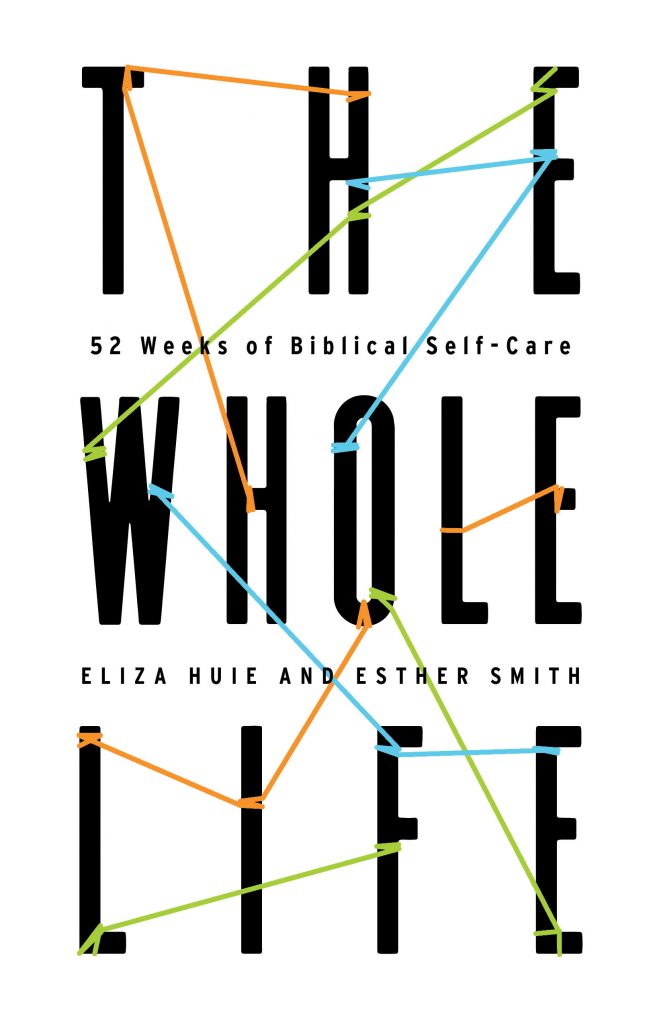Creatures, by definition, are less than their Creator. He is infinite, we are finite; he is unlimited, we are limited.
David P. Murray
One of the most important self-care strategies I use on a regular basis is setting healthy boundaries. While the word boundary is not found in Scripture, we find this term helpful to describe how we respond to Scripture’s encouragement to recognize our limitations. Because I deal with physical symptoms that become exacerbated if I do too much, I have to be careful about what I agree to do. Even if you don’t deal with similar health problems, setting boundaries is important to your long-term health and well-being.
Sometimes people struggle with that idea. Setting clear boundaries might make you wonder if you aren’t being loving and sacrificial enough, but that does not need to be the case. There are healthy and loving ways to set boundaries, and I want to give you one specific strategy that has helped me in this area.
When people ask me to do something that I cannot or should not do, I often say, “I can’t do _______, but I can do _______.” This keeps me open to opportunities to serve but still acknowledges I can’t and shouldn’t be doing everything. Sometimes I will give a reason for why I can’t fulfill the initial request, and other times I won’t. Here are a few examples of what that can look like.
- I can’t meet with you at 8 p.m., but I can meet with you any day before 5 p.m. next week.
- I can’t serve on the hospitality committee, because I’m not available every week, but I can serve monthly on the prayer team.
- I can’t read you five more stories at bedtime, but I can read you one.
- I can’t work late tonight, because my son has a baseball game, but I can come in early tomorrow morning.
This strategy for setting boundaries is helpful for a few reasons. First, it recognizes our limitations and helps us practice humility. There are some things we cannot do. Saying, “I can’t” is a practical way to not think more highly of ourselves then we should (Romans 12:3). We enter dangerous territory when we believe we are the only one able to get the work done. What we have to offer is but one small contribution to the limitless resources God has to draw on.
Second, this strategy recognizes that sometimes people have expectations of us that don’t match God’s expectations for us. It’s easy to say yes simply because we don’t want to upset anyone. Other times we start valuing the praise of people over the praise of God (John 12:43). When people’s approval becomes more important than God’s glory, we lose sight of the specific work God has for us.
Boundaries are not meant to be rigid fences that no one can ever breach. We aren’t setting boundaries because we are trying to avoid work or don’t want to inconvenience ourselves. Boundaries help us steward the specific resources God has given us. They enable us to contribute without overextending ourselves and redirect our energy to areas that best suit our gifts and abilities. Often this ends up being better for the people we serve, as it enables us to give the best of ourselves instead of spreading ourselves too thin.
GOSPEL SPOTLIGHT
We depend on a God who never has to say, “I can’t.” His immeasurable power that raised Jesus from the dead lives inside of us (Ephesians 1:19–20). Our limitations lead us to rely on God, who is faithful to provide what we need.
ACTION AND APPLICATION
Spiritual: Take a look at your schedule. Practice humility and depend on God’s limitless resources by setting one new boundary this week.
Emotional: Sometimes we say yes when we should say no because we don’t want to experience uncomfortable feelings. What uncomfortable feelings are you most prone to try and avoid?
Physical: Set a physical boundary in your calendar this week. For example, not working past ____ or not working more than ___ hours a week.
Relational: Practice using this statement with someone this week: “I can’t _______. But, I can _______.”
GUIDED JOURNALING
Journal through some ways you can use boundaries to steward your resources so you can more wisely distribute them to others and redirect your energy to those tasks that best suit your gifts and abilities.
Excerpted from The Whole Life: 52 Weeks of Biblical Self-Care © 2021 by Eliza Huie and Esther Smith. May not be reproduced without prior written permission.






